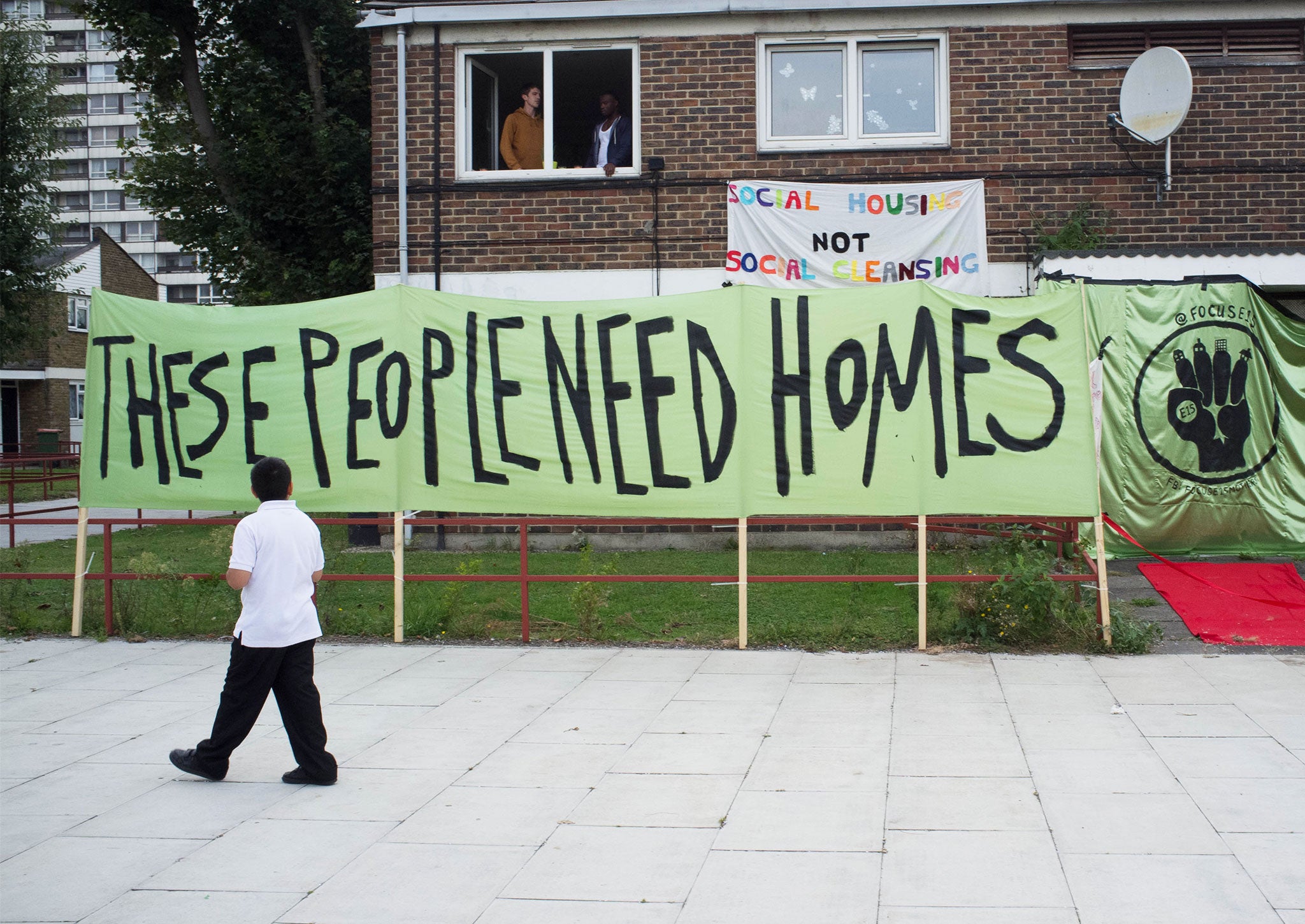Your support helps us to tell the story
From reproductive rights to climate change to Big Tech, The Independent is on the ground when the story is developing. Whether it's investigating the financials of Elon Musk's pro-Trump PAC or producing our latest documentary, 'The A Word', which shines a light on the American women fighting for reproductive rights, we know how important it is to parse out the facts from the messaging.
At such a critical moment in US history, we need reporters on the ground. Your donation allows us to keep sending journalists to speak to both sides of the story.
The Independent is trusted by Americans across the entire political spectrum. And unlike many other quality news outlets, we choose not to lock Americans out of our reporting and analysis with paywalls. We believe quality journalism should be available to everyone, paid for by those who can afford it.
Your support makes all the difference.The number of people evicted from their rented homes this year is on course to be the highest since records began, according to new statistics released by the government.
According to Ministry of Justice figures over 11,000 people were evicted from their homes in the first three months of the year – a 51% rise on the same period five years ago.
In 2014 a total of 42,000 people were kicked out of their rented homes, which at the time represented a new high since comparable records began in 2000
The figures for the first three months of 2015 represent an 8% rise on the same period in 2014 meaning 2015 is on course to break the old record set under the Coalition government. The figures relate to England and Wales only.
The situation could be worsened further in coming years by Government plans to cut £12bn from the welfare budget, much of which is spent helping tenants with housing costs.
The Conservatives pledged in their manifesto that they would stop under-25s from claiming housing benefit, which could also see many who currently rely on the payments turned out of their homes.
Charities blamed welfare cuts and rising housing costs for the rising rate of evictions.
Campbell Robb, the chief executive of Shelter, said: “Today’s figures are a glaring reminder that sky-high housing costs and welfare cuts are leaving thousands of people battling to keep a roof over their heads.
“Every day at Shelter we see the devastating impact of a housing market at boiling point, with the cost of renting so high that many families are living in fear that just one thing like losing their job or becoming ill could leave them with the bailiffs knocking at the door.
“The new government must make sure people aren’t left to fall through the cracks and hurtling towards homelessness by preserving, if not strengthening, the frayed housing safety net to protect ordinary families desperately struggling to make ends meet.”
The Government says it is working to guard against the threat of homelessness.
In a statement, housing minister Brandon Lewis highlighted statistics that showed people who owned their own homes were increasingly secure. He did not address the rate of rental evictions, however.
“Mortgage repossessions continue to fall at 56% lower than this time last year, and the lowest annual figure since the series began in 1987. Meanwhile, numbers of county court mortgage possession claims continue to fall to the lowest quarterly number since records began. This is thanks to our work to tackle the deficit and keep interest rates low, helping more families to stay in their hard earned homes,” he said.
“There are strong protections in place to guard families against the threat of homelessness. We increased spending to prevent homelessness, with over £500m made available to help the most vulnerable in society and ensure we don’t return to the bad old days when homelessness in England was nearly double what it is today.”
Rough sleeping in England however rose by 55% between 2010 and 2014, according to the latest set of figures from the Department for Communities and Local Government.

Join our commenting forum
Join thought-provoking conversations, follow other Independent readers and see their replies
Comments